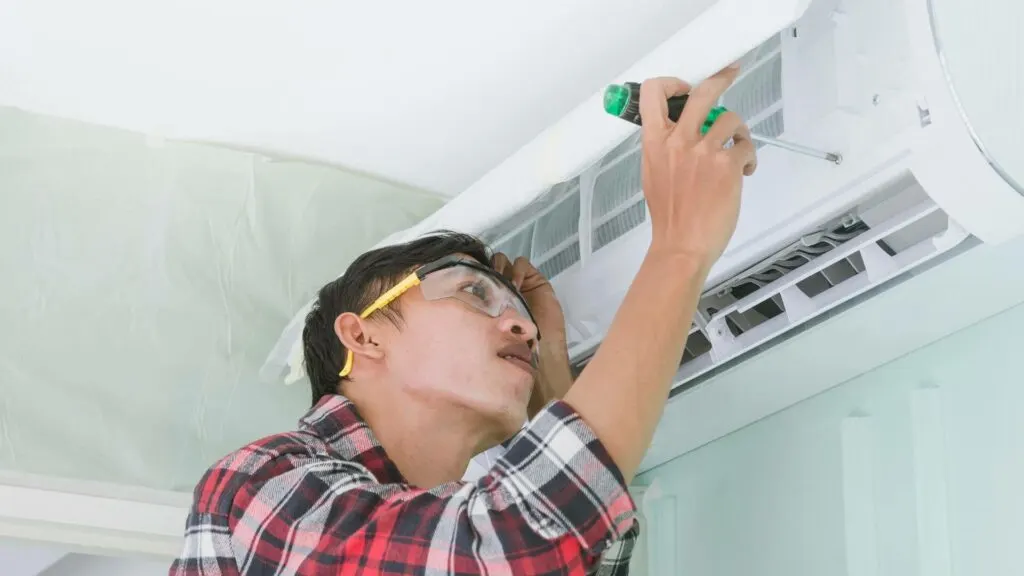Maintaining a home can often seem like a daunting task for many homeowners. Whether it’s addressing sudden repairs or undertaking regular maintenance, knowing how and when to deal with these issues is vital for preserving the comfort, safety, and value of your home. This guide aims to simplify the process, offering practical advice and tips to efficiently handle repairs and maintenance. From identifying common problems to finding the right professionals for the job, we’ll cover all you need to know to keep your home in top condition.

Addressing Roofing Issues Efficiently
Roofing issues, if not addressed promptly, can lead to significant damage and costly repairs down the line. It’s essential to perform regular inspections, especially after severe weather events, to identify any potential problems such as missing shingles, leaks, or signs of wear and tear. Early detection allows for quicker fixes, preventing minor issues from escalating. Homeowners should also ensure their gutters are cleaned and maintained to prevent water damage, which can indirectly affect the roof’s integrity.
When it comes to repairs, prioritizing quality and professional expertise is crucial. Though it might be tempting to opt for the cheapest repair option, investing in high-quality materials and hiring reputable contractors can save money and headaches in the long term. Always seek multiple quotes and check references before selecting a roofing company to ensure you’re getting the best value for your money. It’s also essential to consider warranties and insurance coverage when selecting roofing materials and contractors.
Navigating Plumbing Challenges
Plumbing issues range from minor leaks to major burst pipes, each capable of causing significant inconvenience and damage. Regular inspection of pipes, faucets, and connections is a proactive measure to identify potential problems before they escalate. Look out for signs of moisture on walls or ceilings, unusual water bills, and the sound of running water when taps are off, as these could indicate leaks.
Engaging a professional plumber for annual inspections can also prevent severe problems. In emergencies, knowing where the main water shut-off valve is located and how to turn it off can mitigate water damage. For non-urgent repairs, take the time to research and hire a trusted plumber. Recommendations from friends and neighbors can be incredibly valuable in finding reliable professionals.
Electrical Safety and Upgrades
Electrical systems are a critical component of any home, requiring careful attention to ensure safety and efficiency. Homeowners should be alert to signs of electrical issues, such as frequently tripping circuit breakers, flickering lights, or outlets that are hot to the touch. These symptoms could indicate overloaded circuits, poor wiring, or the need for additional outlets.
Consider hiring a licensed electrician to perform a comprehensive electrical inspection, particularly if your home is old or you’re planning renovations. Upgrading your electrical panel, installing additional outlets, or updating wiring can enhance your home’s safety, functionality, and value. Regular inspections can also identify potential hazards before they become dangerous.
Enhancing Indoor Air Quality
Indoor air quality significantly impacts health and comfort, making it an essential aspect of home maintenance. Common culprits that degrade air quality include mold, dust, pet dander, and volatile organic compounds (VOCs) from paints and furniture. Regular cleaning, using high-efficiency particulate air (HEPA) filters, and ensuring adequate ventilation can improve indoor air quality.
Consider incorporating houseplants that can naturally purify the air, such as spider plants, peace lilies, and snake plants. Additionally, investing in air purifiers and maintaining your HVAC system, including regular filter changes, can further ensure a healthy living environment. Addressing moisture issues promptly is also crucial in preventing mold growth.
Maximizing Energy Efficiency
Improving your home’s energy efficiency can result in significant cost savings and environmental benefits. Start by conducting an energy audit to identify areas where energy may be wasted, such as drafty windows, inadequate insulation, or old appliances consuming excessive power. Replacing them with energy-efficient models can drastically reduce your energy bills.
Simple changes, such as sealing gaps around doors and windows, adding insulation in the attic, and using programmable thermostats, can further enhance efficiency. Optimizing natural light, switching to LED lighting, and adopting energy-efficient appliances are additional steps homeowners can take to reduce energy consumption and lower utility bills over time.

Remaining vigilant and proactive in identifying and addressing repairs and maintenance issues is key to preserving your home’s condition and value. By understanding common problems, investing in quality materials and professionals, and incorporating preventative measures, homeowners can maintain a safe, comfortable, and efficient living space for years to come. Keep this guide handy as a reference for handling any future repairs or maintenance needs to ensure your home remains a safe and welcoming haven. With proper care and attention, your home will continue to be a source of pride and joy for you and your family.

Jessi is the creative mind behind The Coffee Mom, a popular blog that combines parenting advice, travel tips, and a love for all things Disney. As a trusted Disney influencer and passionate storyteller, Jessi’s authentic insights and relatable content resonate with readers worldwide.
